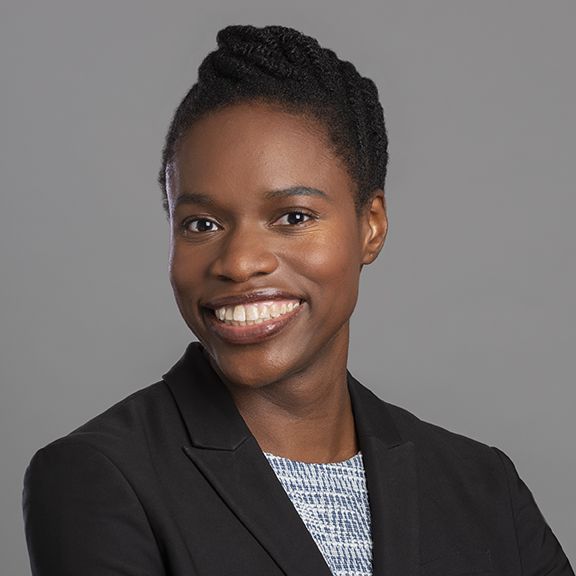BU Law Welcomes Ngozi Okidegbe
As the first dual-appointed professor to the School of Law and the Faculty of Computing & Data Sciences, Professor Okidegbe will be teaching evidence this fall.

BU Law Welcomes Ngozi Okidegbe
As the first dual-appointed professor to the School of Law and the Faculty of Computing & Data Sciences, Professor Okidegbe will be teaching evidence this fall.
Boston University School of Law is proud to welcome Ngozi Okidegbe as associate professor of law and assistant professor of computing & data sciences—the first dual-appointed professor to the School of Law and the Faculty of Computing & Data Sciences. Professor Okidegbe will be teaching evidence this fall.
Ngozi Okidegbe’s focus is in the areas of law and technology, evidence, criminal procedure, and law and race. Her recent work examines how the use of predictive technologies in the criminal justice system impact racially marginalized communities.
Prior to joining BU Law, she was an assistant professor of law at Cardozo School of Law, where she first joined as the inaugural Harold A. Stevens Visiting Assistant Professor in 2019. Before joining Cardozo, Professor Okidegbe served as a law clerk for Justice Mbuyiseli Madlanga of the Constitutional Court of South Africa and for the Justices of the Court of Appeal for Ontario. She also practiced at CaleyWray, a labor law boutique in Toronto.
Professor Okidegbe’s articles have been published or are forthcoming in the Criminal Law Quarterly, Kansas Journal of Law & Public Policy, Connecticut Law Review, and Cornell Law Review.
Okidegbe holds a Bachelor in Civil Law and Juris Doctor from McGill University’s Faculty of Law. She subsequently earned her Master of Laws from Columbia Law School, where she graduated as a James Kent Scholar.
Associate Provost for Computing and Data Sciences Azer Bestavros shares, “Ngozi’s joint appointment at BU Law and in CDS could not be more timely as it speaks to the importance of examining and scrutinizing today’s sociotechnical and human-in-the-loop AI systems and technologies for a better tomorrow. This scrutiny allows us not only to reimagine the design and deployment of these systems but also to reconsider the ethical, legal, and public policy frameworks within which these systems will operate. We are excited to welcome Ngozi as a colleague and a collaborator.”
